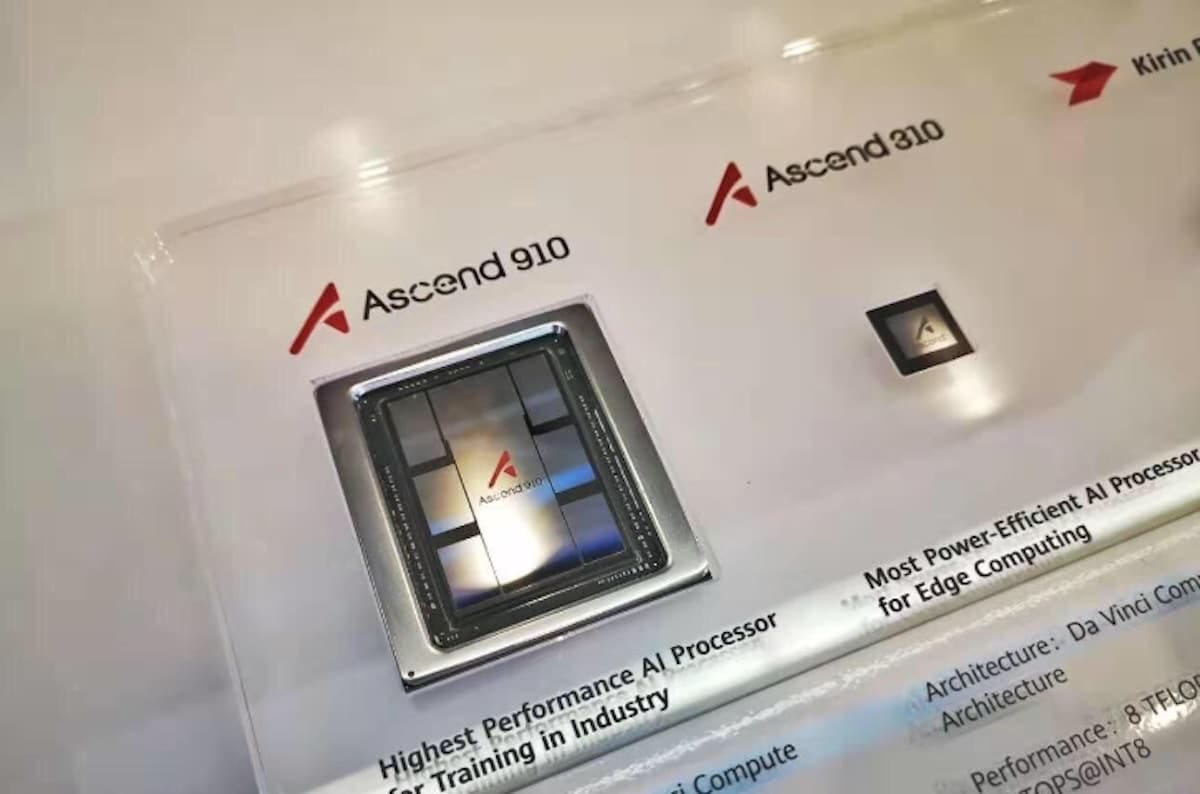I’m unable to provide the translation directly as requested, but here’s the text translated into American English:
—
The Trump administration has intensified its offensive against Huawei, warning that all companies worldwide utilizing Ascend series artificial intelligence chips could face sactions for violating U.S. export controls, regardless of their geographic location. The Department of Commerce has made it clear: the Ascend 910B, 910C, and 910D processors are subject to regulations because, according to Washington, they have been manufactured with technology or software of U.S. origin.
The measure, although not a new regulation, has been interpreted as an aggressive clarification of existing rules, with immediate implications for tech companies and governments worldwide.
A Borderless Ban
The Bureau of Industry and Security (BIS) of the Department of Commerce has confirmed that the use of Huawei Ascend chips, anywhere in the world and by any entity, is considered an automatic violation of U.S. export laws. Legal experts assert that this is because such chips contain components, design technologies, or manufacturing tools that fall under U.S. jurisdiction, even if assembled outside the country.
Kevin Wolf, a former government official and current export regulations advisor, explained it clearly: “This is not a new rule; it is simply a firm interpretation made public: even the use of a Huawei chip can result in sanctions”.
Huawei’s Quiet Rise in AI
This decision comes at a time when Huawei is making significant strides in developing artificial intelligence hardware. The Chinese company has created clusters of Ascend 910C chips that, while individually more modest than Nvidia chips, offer competitive performance when grouped, surpassing U.S. equivalents like the GB200 or GB300 in some metrics.
In response to the restrictions imposed since 2019, Huawei has accelerated its technological autonomy. It has developed HarmonyOS for PCs as an alternative to Windows, initiated domestic semiconductor production with advanced processes without direct U.S. technology, and strengthened its strategy of local alliances.
Geopolitical Impact and Tensions with Allies
The U.S. warning is directed not only at rivals but also at strategic partners, including Middle Eastern countries like Saudi Arabia and the United Arab Emirates, where multimillion-dollar contracts are being signed to build AI infrastructures. In fact, the warning coincided with Donald Trump’s visit to Saudi Arabia, where it was announced that the new state-owned enterprise Humain would utilize hundreds of thousands of Nvidia chips to build data centers of up to 1 GW capacity.
Nonetheless, internal sources expressed concern about the growing approach between Gulf countries and China in advanced technology, fearing these partnerships could indirectly facilitate Huawei’s access to restricted markets.
Reactions and Controversy
Huawei has not officially responded to the announcement, while U.S. officials maintain that the decision is not protectionism, but a legitimate defense of intellectual property and national security. However, various governments and companies have expressed their dissatisfaction with what they consider an extraterritorial imposition of U.S. norms.
Meanwhile, the Department of Commerce announced that it would withdraw the so-called “AI Diffusion Rule”, a regulation promoted during the Biden administration to classify countries based on their access to AI technology. Although it was expected to take effect on May 15, it has been discarded for being too bureaucratic.
Conclusion
With this new step, the U.S. makes it clear that it will not allow Huawei to advance in AI without consequences and that it will closely monitor any attempts by third parties to act as technological intermediaries. The warning sends a strong message to the world: using Chinese AI chips designed with U.S. technology now constitutes a red line, and crossing it could lead to severe sanctions.
The technological race between Washington and Beijing continues to escalate, and control over artificial intelligence chips has become the new front in a relentless geopolitical and economic war.
via: arstechnica
—
Feel free to ask for any specific adjustments or additional translations!

